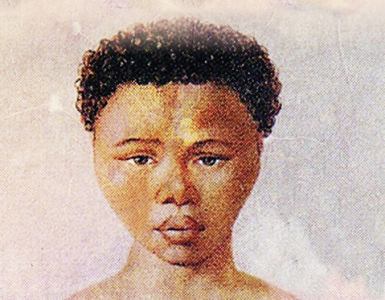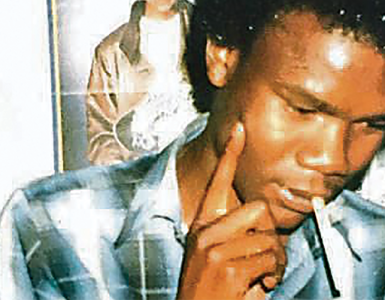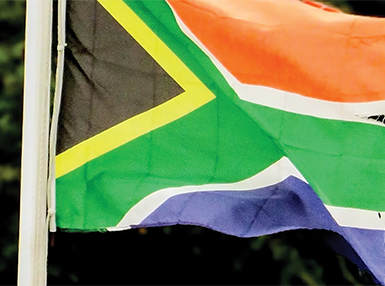sloppy: Country’s foremost liberation movement struggles to find political mojo in its partner
By Jo-Mangaliso Mdhlela
How should we see the toenadering or rapprochement between the ANC and DA penning out in light of what seems to be strained relations between the two political parties locked in the government of unity (GNU)arrangement?
Many in political circles scornfully describe the relations between the ANC and DA as untenable – a project that may benefit the DA more than it does the ANC.
They also see the DA as an unrepentant political entity that has not shed its apartheid past which will, in more aggressive ways, impede the GNU inclusive project – choosing rather a Goliath stance in an attempt to stifle the black economic empowerment agenda embraced by the ANC.
Although the DA growth has been propelled by black people, its leadership and strategic direction are driven by white people sitting in posh offices in Cape Town. At the inception of the idea of national dialogue, the DA, through its federal council chairperson Helen Zille, suggested that since her party and the ANC had formed “a power-sharing government”, demanded her party must play a central role to determine the course the national dialogue should take.
Contrast Zille’s words with those of President Cyril Ramaphosa, in which he said it was the GNU in its entirety that “would forge a common vision” for the dialogue to succeed, then you see a stand-off, with the two leaders speaking from different sides of their mouths.
But there is another existential difficulty facing the ANC. This will be how it intends to deal with the “trust deficit” it suffers – a deficit that has cost it to shed a huge chunk of its support base.
The DA is deliberately ruffling the feathers. Its intention is not to work in harmony with the ANC, but rather to discredit it at every turn, fully cognisant that the ANC is struggling to make common cause with either the EFF or MK Party as possible partners to replace it in the GNU, largely because of different ideological stances.
In its heydays, immediately after the April 27, 1994 elections in which former president Nelson Mandela convincingly won the elections, the ANC enjoyed respect and trust of the people. However, as years wore on, the trust began to dissipate, worsened in later years due to allegations of incompetence and corruption, particularly during the Jacob Zuma era when he was president of the party and the country.
The same cannot be said of Ramaphosa. The ethical question around the Phalaphala debacle remains murky, and hangs a shadow of doubt around his leadership. Additionally, the fact that senior leaders of the movement, fingered in the Zondo commission, continue to form a nucleus of the organisation’s leadership in government, are examples that represent the so-called “trust deficit” phenomenon.
How then will the ANC square the circle, when questions of mistrust and renewal are not being adequately addressed? To cross the Rubicon of mistrust, the ANC must demonstrate to its large constituency that it is on course to redeem itself from poor and uncaring leadership which was not alive to service delivery difficulties.
The blight on the ANC’s reputation must in large measures be represented by the complete breakdown of the infrastructure in the City of Johannesburg, and to a lesser extent other metropolitical councils throughout the country. The ANC has promised renewal, but in practical terms this has become a sluggish process, often thwarted by disunity that continues to rock the movement.
But on the other end of the political scale, most political pundits agree that the DA is an unreformed political entity still adorned in apartheid vestments, an assertion political analyst Prince Mashele makes with great conviction.
There is a sense among political analysts, that its leader John Steenhuisen, as are all other executive leaders, see black people as props with no significant role to play in the organisation. It is not surprising that in some political circles the DA is contemptuously described as a party committed to creating its own enclave in the Western Cape, a kind of “Bantustan”, because it is instinctively attracted to the notion of “white rule and white”.
The first political national dialogue, forged with the National Party, began more than 30 years ago, and was supported by president Nelson Mandela who was committed to building an inclusive nation in keeping with the ideals of the Freedom Charter.
Political dialogue took the form of bilateral talks between the ANC and the apartheid government with the expressed idea of establishing pre-conditions for substantive negotiations, embodied in the Groote Schuur Minute and the Pretoria Minute of the day.
The dialogue and talks were difficult. The 1991 National Peace Accord was established to stem the violence, often sponsored by the apartheid state, and a year later, in 1992, the establishment of the Convention for a Democratic South Africa (Codesa), came into existence as a plank towards dousing political tensions and bringing about a sound climate to negotiate for a smooth political transition.
The period spanning the 1980s and early 1990s saw great political violence erupting, mainly fomented by the apartheid system. At the time of the first national dialogue in the 1990s, the ANC was an “almighty” party seen as the party of the people that had brought freedom and liberation.
But today as Ramaphosa calls for a national dialogue, a moved also supported by former president Thabo Mbeki, and endorsed by several foundations including the Nelson Mandela Foundation, the Thabo Mbeki Foundation, the Steve Biko Foundation, among others, one sticky question remains: what benefits will the national dialogue achieve in a political climate of mistrust prevailing between the ANC and DA?
The ANC has reached its lowest watermark. The political wheels seem to be coming off – and the question of credibility might be impairing Ramaphosa’s image, and any attempt of renewing the organisation.
The crumbling and decaying infrastructure in Johannesburg and poor service delivery issues have rendered the once glorious city into city of shame, likened by many to a pigsty.
This state of decay is replicated in others cities throughout the country.
With that said, the state of decay in many of our country’s cities emboldens the DA leader, Steenhuisen, to think the ANC is a spent force ready to be displaced as the majority party in the country.
The ANC has been weakened, and this leaves the party with a huge challenge. Whether it will be able to pull all stops to reverse its electoral misfortunes, we will never know.
In about two years’ time, the ANC goes to its national conference to elect new leadership – the leadership that will take it to the general elections of 2029.
As for the planned national dialogue, no definite date has been set.
But for the ANC what is uppermost in its mind will not be the planned national dialogue. The preoccupation will be to regain its loss electoral ground, and to stem further decline that could cause more grief to the organisation’s faithful.
As for its partnership with the DA, the ANC has taken a huge political risk.
In black circles, the DA is seen as white party that is not committed to change, but more of a white party that is not different from the National Party which oppressed black people.
The coalition government is seen as motivated by political convenience in which the ANC is prepared to sup with the devil if that meant maintaining political hegemony in the GNU.
• Mdhlela is an independent journalist


































